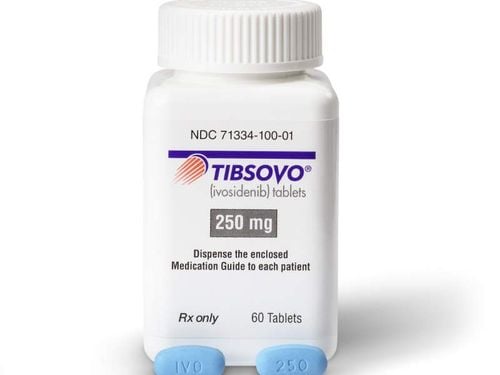This is an automatically translated article.
Arsenic trioxide is a drug that interferes with the growth of cancer cells in the body, thereby causing these cells to be destroyed. However, the growth of normal cells can also be affected by the drug, so if any side effects occur, it is important to tell your doctor right away.1. Uses of Arsenic Trioxide
What is Arsenic Trioxide? Arsenic trioxide is a form of the naturally occurring compound arsenic that has been used by physicians (especially in Asia) for hundreds of years. Arsenic trioxide is safe when used in small doses by experienced healthcare professionals. This active ingredient works against cancer by causing cancer cells to self-destruct, a process also known as apoptosis. Arsenic trioxide is also the main active ingredient in Arsenic trioxide. Arsenic trioxide is used to treat cancer of the blood and bone marrow also called acute promyelocytic leukemia or APL.
2. How to use Arsenic Trioxide?
Arsenic trioxide is given intravenously at a specific dose that will depend on the patient's body size. Arsenic trioxide is given intravenously over 1-2 hours or can be extended up to 4 hours if the patient develops an acute vasomotor reaction.
3. Possible Side Effects of Arsenic Trioxide
Some of the most common or important side effects of Arsenic trioxide that may occur to patients:
Differentiation syndrome: This is a syndrome caused by Arsenic trioxide-induced changes in cell production. hematopoietic cells in leukemia patients. Symptoms of differentiated syndrome include: fever (temperature higher than 38°C), sudden weight gain, bone or joint pain, and fluid buildup around the heart, lungs, and/or chest, making it difficult to breathe. Heart problems: Arsenic trioxide can cause an abnormally slow heart rate or QT prolongation. Patients will be monitored before and during Arsenic trioxide treatment with an electrocardiogram. In some cases, arsenic trioxide can also cause a faster-than-normal heartbeat. Hepatic encephalopathy: Arsenic trioxide can cause hepatic encephalopathy. Some of the symptoms of this side effect include confusion, decreased level of consciousness, seizures, changes in the way you think, difficulty walking, or changes in vision or hearing. Nausea, vomiting: Arsenic trioxide treatment can include adding medications to help control nausea and vomiting, and changing your diet to avoid things that can worsen vomiting symptoms such as food. eating foods that are too thick or very greasy/fat, spicy, or acidic (lemon, tomato, orange). Feeling tired: During cancer treatment with Arsenic trioxide and for some time afterward, patients may need to adjust their schedule to control fatigue, planning time to rest to prevent fatigue. Save energy for more important activities. Headaches and muscle or joint pain: The patient's doctor or nurse may recommend supportive medications and other strategies for pain relief. Diarrhea: The doctor may prescribe the patient to use medicines to reduce diarrhea during treatment with Arsenic trioxide. Electrolyte abnormalities: Arsenic trioxide may affect the normal levels of electrolytes in the patient's body. Abnormal levels will be monitored with blood tests. Leukocytosis (high white blood cell count): Arsenic trioxide may affect a patient's white blood cell count. Elevated blood sugar: Arsenic trioxide may increase blood sugar in patients with and without diabetes. The doctor will monitor the patient's blood sugar. Rash/Itchiness: Some patients may experience a rash, scaly skin, or an itchy rash when taking Arsenic trioxide. Edema (Swelling): Arsenic trioxide can cause swelling, if the patient experiences rapid weight gain or swelling in the legs or feet, notify the doctor immediately. Important but less common side effects of Arsenic trioxide: Allergic reactions, secondary cancers, liver toxicity, effects of Arsenic trioxide on reproductive function...
Please dial HOTLINE for more information or register for an appointment HERE. Download MyVinmec app to make appointments faster and to manage your bookings easily.
Reference source: oncolink.org












